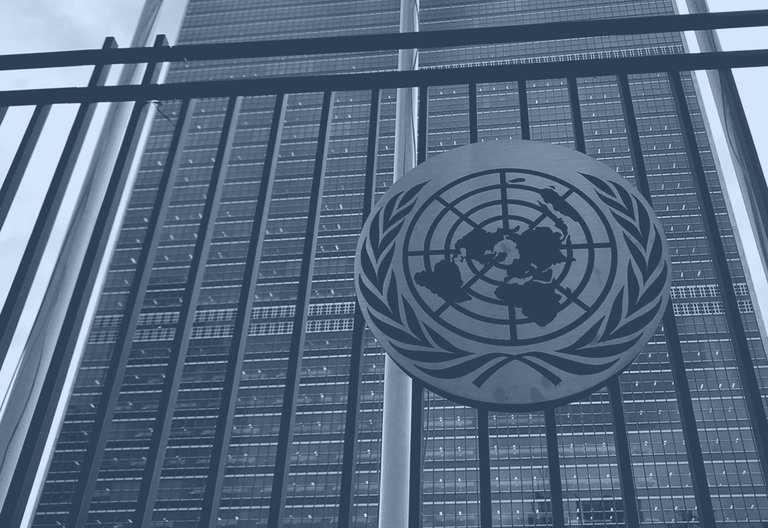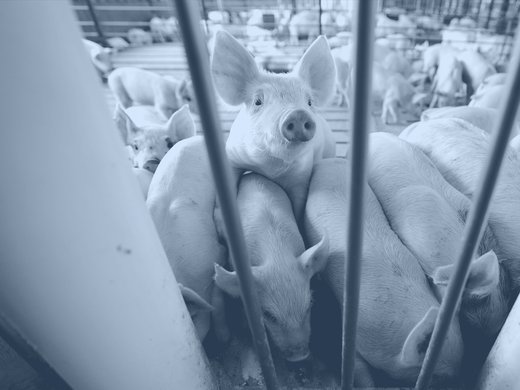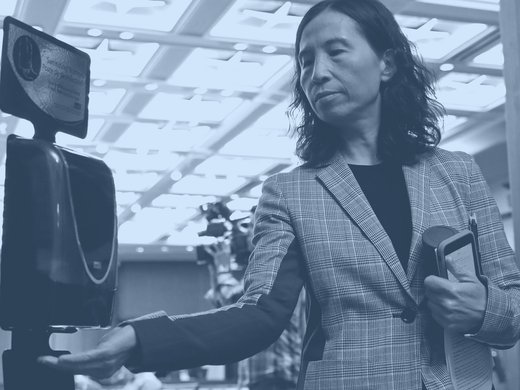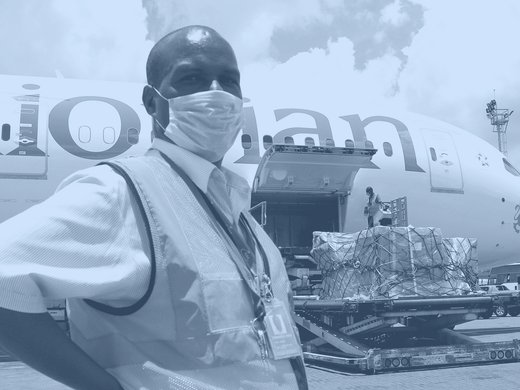n mid-June, Canada’s hopes in winning one of the coveted Security Council seats was dashed – sparking hand-wringing and critical reflection about our country’s standing in the world. But, given the performance of the Security Council during the COVID-19 pandemic and its general slide into paralysis over the past five years, the ritual of Council elections should also have prompted sober assessment of whether it can or will continue as the world’s ‘top table’ for managing threats to international peace and security.
While some might argue that the Security Council’s inability to address COVID-19 is little cause for concern given that other bodies of the UN system (particularly the WHO) are explicitly tasked with global public health emergencies, Council members fell spectacularly short even in their ‘core business’ areas. In late March, Secretary General Antonio Guterres told Member States that the virus was“the gravest threat” to the UN since “the founding of this organization” and called for a global ceasefire to enable organizations working in conflict-zones to redirect their attention to fighting COVID-19. Council members could not negotiate a resolution in support. There was a stand-off between China and the US over whether to mention the WHO in the text of the resolution and Russia insisted that a ceasefire could not apply to vital ‘counter-terrorism’ operations (most notably in Syria). Similarly, the appeal from the Secretary-General and his human rights Commissioner Michele Bachelet for the Security Council to ease its sanctions regimes on countries such as Iran – to facilitate access to medical equipment and supplies to fight the spread of the coronavirus – saw very little take-up from Council members.
Finally, in early July 2020, Security Council members continued their tense stand-off over the renewal of arrangements to maintain cross-border humanitarian aid flows into Syria. The failure to agree at the eleventh hour (as the current arrangements were expiring) risked cutting off humanitarian access to over a million Syrians in the area north of Aleppo. But it also represents just one more incidence of Council disunity – symbolized by the regular casting of vetoes by permanent members — in the face of a decade-long civil war that has generated both widespread civilian suffering and mass migration.
Past evidence suggests that when the Council is united and sends a message of its resolve, as it did, for example, over chemical weapons in Syria in 2012 or in the wake of the 9/11 attacks, it can have a profound impact on the behaviour of actors in conflict-situations. Indeed, many believe that if Security Council members had acted more decisively to support Guterres’ global ceasefire initiative, it could have made a significant difference.
COVID-19 thus appears to have amplified, rather than altered, the on-going decline in both the performance and legitimacy of the UN Security Council. Every time it is ‘missing in action’, its credibility continues to drain away.
This trend is all the more tragic in light of the fact that the pandemic is now beginning to spread more widely within conflict zones, with devasting consequences for civilian and displaced populations, but also because projections suggest that the effects of the virus will tip a significant number of fragile societies into large-scale episodes of violence and civil war over the next two years. More worryingly, the Council has a number of particularly difficult issues in its sights in the next few months, including the impending annexation of the West Bank, North Korea’s missile tests, and the on-going fate of the Iran nuclear deal.
Between now and 2022, we could see three main trends in global security cooperation.
First, the Security Council will continue to serve as a field upon which global power dynamics play out, rather than as a body that delivers effective management of peace and security challenges. This entails acting as one of the focal points for Sino-US rivalry (alongside other institutions like the WTO), but also as a forum in which Russia - a declining power clinging onto its status - plays a disruptive role with respect to security issues that implicate its core interests. To a lesser extent, we will also witness France striving to prove its continued relevance as the sole permanent member from the EU, particularly as ‘pen-holder’ on peace operations mandates.
Indeed, the reconfiguration and draw-down of several UN missions – including the large-scale peace operation in the Democratic Republic of the Congo – is one of the few agenda items upon which Council members will be forced to deliberate and expend political capital. But even here, we are more likely to see more short-term thinking on the part of Security Council, obsessed with cost reduction and risk aversion, rather than the kind of strategic engagement required to ensure that poorly managed transitions do not result in resumption of conflict.
Second, creative efforts to address the Council’s abdication of its responsibility in addressing global insecurity and civilian suffering are likely to intensify. One example to build upon is the General Assembly’s creation of an accountability mechanism for war crimes committed in Syria. Alternatively, states could draw on precedents from the early 1990s, in which regional organizations in Africa empowered their members to use force collectively to address security challenges without prior authorization from the Security Council, to work around the prospect of continued deadlock among the Permanent Five.
Finally, rather than waiting for the hegemon to return to leadership, or for the traditional members of the Security Council to agree on forms of global cooperation, states with common interests could independently create what international lawyers Oona Hathaway and Scott Shapiro have recently termed ‘global clubs’. These collectives would share the burdens and costs of a variety of goods, from vaccines to cyber security, while denying the benefits to ‘bad actors’. Although these so-called club goods are more difficult to provide in the realm of security, they are not impossible and some alliances and security organizations already approximate their delivery.
In the short-term, it is essential that more pragmatically-driven collectives of states come together to address both regional and global security challenges. In such a scenario, perhaps the sting of Canada’s loss in the Security Council election will feel a little less painful.
This article first appeared in The Hill Times.






